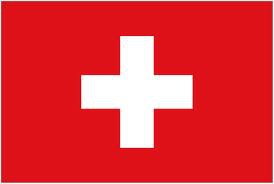Switzerland has reinforced its opposition to unilateral sanctions imposed on Iran outside the framework of the United Nations. The assertion comes in defiance of such unilateral sanctions imposed by Israel, the United States (U.S.) and the European Union (EU).
Switzerland�s Foreign Minister Didier Burkhalter has said in Moscow his country will never back sanctions, imposed by any alliance, outside the U.N. Security Council framework. �As a rule, we don�t support such sanctions�, said Mr. Burkhalter after talks with his Russian counterpart Sergei Lavrov.
Not being a member of the European Union (EU), Switzerland is not bound by the decisions of the 27-nation grouping, which has recently imposed fresh curbs, including a ban on Iranian gas imports. Last month, Swiss President Eveline Widmer-Schlumpf slammed unilateral Western sanctions against Iran by calling them �unacceptable�.
She stressed that Switzerland would continue its economic engagement with Iran within the framework of U.N. decisions.
Switzerland is a major global centre for oil trading, and is host to an office of the National Iranian Oil Company (NIOC).
VICIOUS ATTACK
Pro-Israel organisations have viciously attacked Bern after a disclosure in September that Vitol � a Switzerland-based company � had traded in millions of barrels of Iranian oil. Josh Block, a former Clinton administration official and until recently the CEO of The Israel Project, a Washington based pro-Israel organisation, told�The Jerusalem Post: �It is truly shameful that the Swiss government continues to help Iran evade EU sanctions as the regime in Tehran continues its march toward nuclear weapons, denies the Holocaust, threatens its neighbours and oppresses its people.�
An AFP report citing local media said western economic sanctions have hit around six million patients in Iran, because of the difficulties in importing medicine.
Fatemeh Hashemi, head of the Charity Foundation For Special Diseases (CFFSD), said though there is no explicit ban on importing medicines and medical equipment, the imposition of banking sanctions has �severely affected� import of medicines required for treating complex illnesses.
�We feel the shortage primarily for cancer and multiple sclerosis drugs. Of course, Thalassemia and dialysis patients are also the targets of these hardships�, she was quoted as saying.
�The price of domestically produced drugs has increased 15 to 20 per cent during the past three months, and that of imported supplements by 20 to 80 per cent�, pharmacist Mohammad Hossein Hariri recently told the Iranian Students� News Agency (ISNA).
The Iran Project is not responsible for the content of quoted articles.
# Tags











